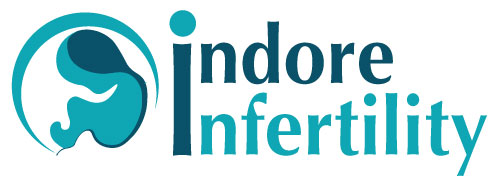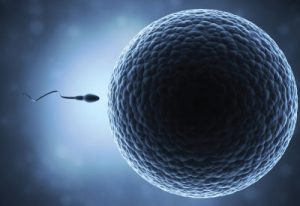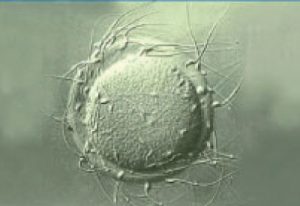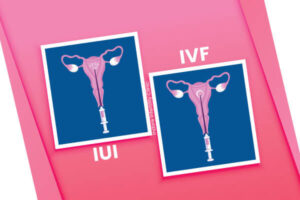
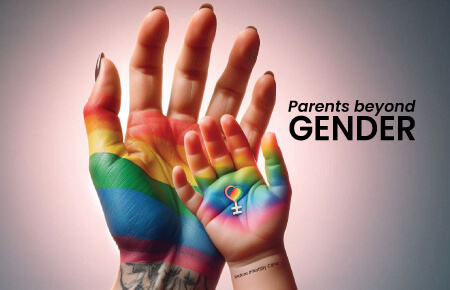
A common concern among trans persons is finding the route to parenthood. Apart from the dilemma of how to have one’s biological children, things like the gender transition process and eventually the pregnancy planning can be very confusing for many. We aim to answer the most common questions that arise about fertility and pregnancy for trans-men and trans-women through this blog. If you are a trans person or know someone who needs these questions answered, we hope this blog helps you plan your fertility preservation and understand other fertility concerns.
Following are some points to help understand gender identity and expression:
Who is a Transgender? How are they different from lesbians and gays?
The term transgender applies to those persons who identify as the gender opposite to which they are born. It is about a person’s gender identity, not the anatomical sex of a person.
Let us start with understanding terms Cis and Trans first.
Cisgender:
persons whose gender identity aligns with the sex they were born with.
Transgender:
persons whose gender identity differs from the sex they were born with.
For example:
- A transgender woman is someone who was born as a male but identifies and lives as a woman.
- A transgender man is someone who was born a female but identifies and lives as a man.
Transgender persons may experience gender dysphoria, which is a sense of distress due to the mismatch between their gender identity and physical characteristics.
Transgender persons go through many transitions to align their bodies and lives with their gender identity, which can include gender-affirming medical treatment including hormonal and surgical treatment, and legal changes like changes in name and gender.
Being Lesbian or Gay on the other hand depends on the person’s sexual/romantic preference and not gender identity.
Lesbian: A lesbian is a woman who is sexually attracted to other women. It could be a cis or transwoman.
Gay: usually refers to men who are attracted to other men. It could be a cis or transman.
What are the phases of transition in trans persons?
Transitioning is a multi-step process. The aim is to align their physical appearance and social identity with their gender identity. This process can involve many steps.
- The first step is recognizing one’s gender identity.
- Social Transition or Coming out: typically begins with sharing with family, friends, colleagues and others.
- Changing Name and Pronouns: Name change can help align with one’s gender identity.
- Changing Gender Expression: changing clothing, hairstyle and mannerisms.
- Medical Transition
- Hormone Therapy: to induce physical changes that align with their gender identity.
- For transgender women (Male to Female), this typically involves estrogen treatment.
- For transgender men (Female to Male), it involves using testosterone
- Surgical Treatment: Gender-affirming surgeries to align their physical bodies with their gender identity.
- Legal Name and Gender Change: involves updating identification documents to include the changed name and gender.
This whole process can be a complex and difficult journey for trans persons and they must seek help from family and friends. If needed psychological help can also be taken if dealing with stress or other mental health issues.
What is fertility preservation for trans gender ?
- Fertility preservation involves certain medical procedure to ensure a person’s capacity to have biological children in the future.
- This is useful for those who are about to undergo treatments which can reduce their fertility, such as cancer therapy, hormone treatments, or surgeries on genital organs.
- Common methods include – freezing eggs or ovarian tissues in females and sperm in males.
- These preserved gametes can later be used in methods like in vitro fertilization (IVF) to have biological children.
- Embryos can also be preserved if the legal criteria are met.
Why is it important to seek fertility preservation for trans persons?
Trans men and women usually undergo hormonal treatment to get physical characteristics of the gender with which they identify. These hormones are of the gender opposite to the one with which they are born.
- If a trans-man is taking testosterone treatment for masculine physical traits, it can impact their ovarian function.
- Similarly, if a trans-woman is taking estrogen treatment for feminine physical appearance, then their sperm production can be severely affected.
- These hormones reduce the person’s fertility potential by various mechanisms.
- That is why if a person wants to have biological children in the future, it is advised to seek fertility preservation treatment.
- Eventually many trans men and women proceed to get gender-affirming surgeries where they get their genital organs removed or altered to permanently become a male or female according to their gender identity.
- This could be a point of no return in terms of the potential of having one’s biological children.
- Hence timely consultation with a fertility specialist doctor is essential for trans persons before starting the medical or surgical treatment.
When is the right time to consult a fertility specialist for fertility preservation?
The right time for a transgender person to consult a fertility specialist depends on their current state of transition. The ideal time would be before starting the hormonal treatment.
Before Starting Hormone Therapy: You can consult your fertility doctor before starting your hormonal treatment. The following options can be provided to you:
For trans-man:
- Egg freezing: involves hormonal injections and later taking out mature eggs from ovaries using a needle under anesthesia. The eggs are then frozen for later use.
- Ovarian tissue freezing: a surgical procedure where small pieces of tissue from ovaries are taken and frozen preserved.
- Embryo preservation: if legal criteria are met. If you are legally married to your partner, you can choose this option as well (as per current legal requirements in India). Here the eggs are fertilized by the sperm of your partner and these can be preserved. Later they can be used to achieve pregnancy.
For trans-woman:
- Sperm freezing: involves taking semen samples and then freeze preserving these after processing.
- Sperms can be obtained by ejaculation or by surgical sperm collection methods in case of any obstruction or ejaculatory problems.
During Hormone Therapy: during hormonal therapy it can be difficult to obtain good-quality eggs or sperm.
- In these cases, it is advised to withhold the hormonal treatment for a few months, and then check for the function of ovaries or testes.
- After confirming adequate functioning of ovaries or testis, treatment for fertility preservation can be provided.
- Later the hormonal treatment can be resumed after a satisfactory number of eggs or an adequate semen sample is obtained.
Before Gender-Affirming Surgeries:
Trans-women may want to get their testis removed for gender alignment.
- It is important for them to understand that after that they would not have their gametes.
- If they want to have biological children, they can consult a fertility doctor if they have not taken steps for fertility preservation earlier.
Trans-men are usually advised to undergo removal of their womb and ovaries to protect them from the risk of some genital cancers.
- If they have not taken any steps to secure their fertility, it would be advised to consult a fertility specialist doctor.
Such procedures are permanent and detailed counseling should be provided to all trans persons before accepting them. It is also important that a frank discussion about fertility concerns, desire for children, current relationships and its psychological impact is held with your fertility doctor.
Post-Transition Family Planning: After the complete transition if a person wants to have biological children, then they should consult a fertility specialist. If they have already preserved their eggs or sperm, they can go for IVF.
For a pregnancy to happen, eggs, sperm and a womb (uterus) are needed.
Hence, there are 2 more questions that should be addressed during fertility preservation and family planning for trans persons:
Will they need the other gamete for IVF?
- That would mean, if they have preserved sperm, will they have eggs from their partner or they will need a donor?
- The same question applies to those who have preserved eggs. Will they have sperms available from their partner, or they will need donor sperms?
The other important question would be – Who will carry the pregnancy?
- It is important to understand that if either of the partners has a womb, they can carry the pregnancy after IVF.
- If neither of the partners has a womb (uterus) in their body then, the option of surrogacy can be considered.
The option of adoption is also available if it is not possible to have a pregnancy for either of the partners/ single trans person.
In all such scenarios, it is important to understand the current legal concerns and it is advised that you consult with a legal aid before proceeding with these procedures or options.

What if I have already started the hormonal treatment? Can I still get my eggs or sperm preserved?
Yes, it is possible to preserve eggs or sperm even after starting the hormonal treatment. As explained in detail above, you will need to withhold hormonal treatment for some time for that. Please read the above answer for a detailed explanation.
How long can my eggs/sperm/embryos be preserved?
At present eggs/sperm/embryos can be preserved for 10 years in India.
Do I have to be married to get fertility treatment?
According to current laws concerning fertility treatment (ART Act 2021), only married couples and single women can seek fertility treatment. If you do not fall in either of these categories, it is advised that you have a clear discussion with your fertility doctor as well as obtain legal aid from someone who has experience in this particular area.
Can I have a baby after my surgical transition is over?
To be able to have a child after the surgical transition is over, the following points should be kept in mind:
- For a pregnancy to happen, eggs, sperms and a womb (uterus) are needed.
- To have a baby as a couple or a single person, you must have access to all these.
- Pregnancy in all such cases would be achieved by IVF/ artificial reproductive techniques.
- If you or your partner have eggs/sperm/embryos preserved before your transition and if either of you has a womb, then pregnancy can be achieved.
- In cases where either of the gamete – egg/sperm is not available to you; you can discuss about possibility of donor eggs/sperm.
- In cases where neither of you has a womb, you can discuss the possibility of surrogacy with your fertility doctor.
- Adoption is also an option for those who cannot achieve a pregnancy utilizing the above options.
- Again, we would like to emphasize the importance of taking good legal advice parallel to fertility treatment, so that you have an understanding of paternity/maternity and its legal implication
Can a transman or transwoman become a parent? Can a transwoman become a mother? Can a transman become a father?
Yes, a transman or transwoman can become a parent. There are many options available for them to enjoy parenthood based on their phase of transition and partner status. Because the whole process is complex due to the transition process, it is advised that you consult a fertility specialist when you desire to become a parent. They will help you understand all the possible options available to you.
What are the options for pregnancy? Who will carry the pregnancy if I don’t have a womb?
- A womb (uterus) is essential to carry a pregnancy. So, if you or our partner has a uterus then either of you can carry the pregnancy.
- If you have a uterus and you wish to have a pregnancy before you undergo transition surgery, you can try for a naturally conceived pregnancy or take fertility treatment based on what phase of transition you are in.
- If you have a womb and plan to carry a pregnancy before transitioning completely, you can take fertility treatments like IUI or IVF to get pregnant.
- If neither of you has a uterus, then you will need a surrogate to carry your pregnancy.
- It is essential that you discuss your plans for pregnancy with your fertility doctor, ideally before making any permanent transitions.
Can a transwoman or transman plan a pregnancy?
Yes, it is possible for a transwoman or transman to plan a pregnancy. This requires you to get a consultation with a fertility specialist doctor, because the treatment is customized to your transition state and partner status.
Can transgender get pregnant?
One needs a womb to get pregnant. If a transgender person has a womb (uterus) in their body, they can get pregnant.
Can a transwoman have a baby? Can a transwoman get pregnant?
A transwoman is a person who does not have a womb by birth. They cannot get pregnant, but they can become a biological parent by using their sperm by various methods, like IUI and IVF. It is important that they discuss their concern with a fertility doctor to understand all their options.
Can a transman have a baby? Can transman get pregnant?
A transman is a person who is usually born with a womb. They can get pregnant and also give birth to a baby. They can plan their pregnancy based on their phase of transition and partner status. If they do not wish to carry a pregnancy, they can still become a biological parent by using their eggs. They should discuss their plans with their fertility specialist, so that all available options can be discussed with them.

What are the Pros and Cons of having a baby before transitioning?
The decision to have a child before transitioning has its advantages and disadvantages, here we are discussing some of them:
Pros of Having a Child Before Transitioning
- Natural Fertility: Before starting hormone therapy or undergoing gender-affirming surgeries, your fertility is typically at its natural state, which makes conceiving easier. This applies to both trans men and women.
- Avoiding Additional Procedures/Fertility Treatment: because you can conceive naturally at this point, you can avoid freezing your eggs/sperm.
- Getting Assisted Reproductive Treatment: If you a person born with a womb and ovaries, you can get ART from a fertility clinic as per current laws (ART Act 2021) in India.
- Continuous Gender-Affirming Treatment: If you have children before transitioning, you can start and continue hormone therapy and other gender-affirming treatments without interruption for fertility preservation or pregnancy.
- Reduced Gender Dysphoria: For some, carrying a pregnancy or providing sperm/ eggs after transitioning or getting pregnant can increase their gender dysphoria (discomfort). Having children before transitioning might reduce this.
Cons of Having a Child Before Transitioning
- Preparing for Parenthood: Deciding to have a child before you’ve addressed your own needs and transition can be difficult. You must be in your best mental health before you take over the responsibility of a baby.
- Transition Delay and Postponing Treatment: Having a child first may delay your transition, which can prolong any distress associated with gender dysphoria.
Alternatives solutions:
Fertility Preservation: Consider preserving your eggs or sperm before starting hormone therapy. This provides you with an option to have your biological children after you’ve transitioned.
What are the Pros and Cons of having a baby after transitioning?
Pros of Having a Child After Transitioning
- Gender Affirmation: You can experience parenthood in a way that is fully aligned with your gender identity, which can be emotionally very satisfying.
- Better Mental Preparation: Transitioning first can improve your mental health and emotional stability, potentially making you a happy and fulfilled parent.
Cons of Having a Child During/After Transitioning
- Reduced Fertility due to Hormone Treatment: Hormone therapy can reduce your fertility. Trans men on testosterone have reduced ovarian function, and similarly, trans women on estrogen have reduced or absent sperm production.
- Need for Fertility Treatment: You may need to take fertility preservation treatment, such as egg or sperm freezing, before starting hormone therapy, which can be costly and involve medical procedures.
- Need to Pause Hormone Therapy: If you want to preserve your gametes (eggs or sperm) after starting hormonal treatment you will be advised to pause treatment to restore fertility, which can be physically and emotionally disturbing.
- Need for Donor Gametes: If you have not preserved your eggs/sperm before or during your transition, then you might need donor gametes to have a pregnancy.
- Need for Surrogacy: If you have undergone removal of your womb as a part of your surgical treatment, and your partner also doesn’t have a womb, then you will need the option of surrogacy for pregnancy.
What are the legal aspects that I should be aware of? Who can seek fertility treatment according to the ART Act 2021?
Following are the legal aspects to understand the rights of transgender men and women and how the ART Act impacts them:
- The Transgender Persons (Protection of Rights) Act, 2019: provides legal recognition to transgender persons and prohibits discrimination in various social areas, including healthcare.
Access to Healthcare: transgender persons have the right to access healthcare services without discrimination. They should have access to gender-affirming treatments and related medical procedures. Though not explicitly mentioned, fertility preservation does fall under this domain.
- The Surrogacy (Regulation) Act, 2021, and the Assisted Reproductive Technology (Regulation) Act, 2021, regulate ART and surrogacy practices in India.
These Acts primarily address the rights of heterosexual married couples for ART and surrogacy and single women only for ART.
- If you are unsure about any of these laws and their implication for yourself, you can get help from Non-Governmental organizations (NGOs) and Support Groups who work for the support and welfare of Trans men and women.
What help should I seek apart from a fertility doctor?
You must get the required help from a mental health professional to help you deal with the psychological impact of fertility preservation and pregnancy planning. Along with that, we recommend taking legal advice to ensure that your rights are protected while you plan a family.
At Indore Infertility Clinic, we are dedicated to supporting every person’s fertility journey. We believe that everyone should be able to experience the happiness of parenthood. We understand that a trans person’s journey is difficult and complex, and we are here to help you through that. We can help you preserve your fertility and also become a parent according to your transition and partner status. Our experienced team provides compassionate and respectful care equally to all.
